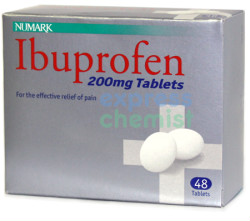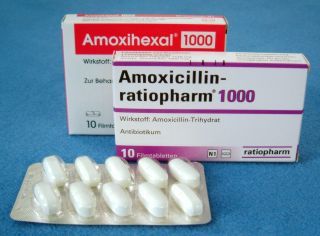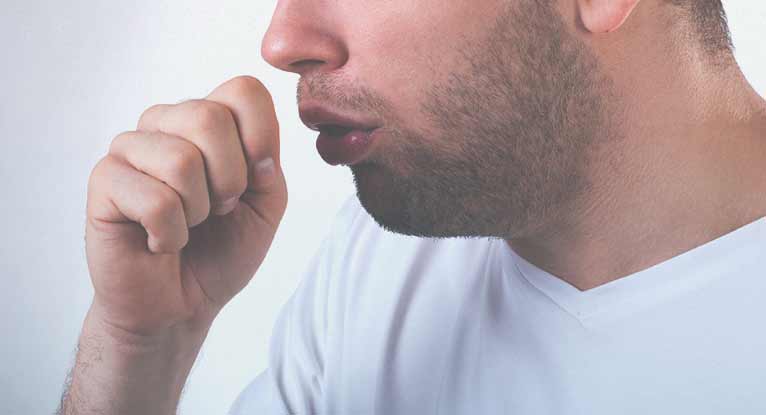However, many people use pneumonia home treatment to combat their condition. Treatment of mild pneumonia can take two to three weeks, but people or babies suffering from other medical conditions in addition to pneumonia tend to suffer more and are often admitted to hospital.Here are a few useful pneumonia home remedies that have been used by numerous people to fight this infection.
Take Care at Home
Change Your Way of Life

One of the most effective home remedies for pneumonia is to change your lifestyle. For instance, if you are a smoker, then it is best to quit smoking right now, as the cigarette’s smoke is extremely injurious to your health and lungs. It is better to avoid spending time with people who have a weak immune system so that they don’t become infected, but it is absolutely safe to stay around people with a strong immune system as pneumonia doesn’t get transferred from a patient to a healthy person.
Take Enough Rest
As soon as you feel that you are being attacked by pneumonia, you should begin your bed rest. Take as much rest as you can so that your recovery phase speeds up. After about a week, you will start feeling better, but the fatigue and exhaustion may prevail for at least a month, and sometimes even longer. Pneumonia patients receiving treatment in the hospital need a minimum of three weeks prior to returning to their routine life. However, if you are a smoker, it will take you a longer time to eliminate all the symptoms of pneumonia.
Increase Your Fluid Intake
Make sure to increase your intake of fluids when treating pneumonia at home. The best thing is to drink as much water as possible because water keeps you hydrated and loosens the Mucus from the lungs.
Resume Your Routine Life After the Symptoms Disappear
Once mucus stops appearing when you cough and the fever vanishes, you can resume your routine life and can go back to your school or work. Begin by going for half of the day, so that you don’t put a lot of pressure on your body. Do not exhaust your body as you will easily become tired. After about three weeks from your recovery date, you can begin working full time.
Use Complete Course of the Prescribed Medicines
Make sure to take the complete course of the medications that you have been prescribed. Stopping the medication before you are completely recovered can put you at risk as the bacteria can increase in number, thus causing the infection to reappear. Hence, you must take care that you continue taking the medicines unless and until all the signs of pneumonia have completely disappeared.
Eat Helpful Foods

Another helpful pneumonia home treatment is to eat some healthy and helpful foods that are known to reduce the effect of the infection.
Garlic
Garlic is known for battling the different fungi, bacteria and viruses associated with pneumonia. It decreases your body temperature and enhances expectoration for clearing the phlegm from your lungs and chest.
How to apply:
- To make the most of this ingredient, it is best to add three parts of water with one part milk, along with a half teaspoon of garlic. Crush the garlic before adding it so that it dissolves in the mixture easily. Boil this mixture until you get one-fourth cup of the amount you added in the start. Use it three times a day.
- You can also use garlic by mixing it with an equal quantity of honey and lemon juice. Consume it three times a day. Rubbing garlic juice or paste on your throat and chest can also be helpful. If its smell and taste bothers you, you can use ginger tea instead.
Vegetable Juice
Drinking vegetable juices is also a helpful pneumonia home treatment. Cucumber, spinach, beet and fresh carrot juices are excellent for treating pneumonia at home. They boost your immunity, dissolve the mucus and also help you to detoxify your body. Drink parsnip juice as well as it is saturated in chlorine and phosphorus, which is helpful for the lungs and the bronchial system.
How to apply:
- Mix spinach and carrot juice together in a two to three ratio and drink it every day.
- You can also mix one part of cucumber and beet juice with three parts of fresh carrot juice and use it every day.
- Drinking a cup of fresh parsnip juice every day is also beneficial.
Turmeric
Turmeric kicks mucus out from your body. It also fights infection as it has antibacterial and antiviral properties.
How to apply:
- Mix mustard oil and turmeric powder and apply this paste on your body, mainly the chest area.
- Mix one teaspoon turmeric in lukewarm milk and drink it twice or thrice daily.
- Mix one fourth of teaspoon black pepper with half a teaspoon of turmeric in warm water and drink it daily.
Watch the video below to find more foods for soothing pneumonia symptoms:
Take OTC Drugs

Using ibuprofen or Paracetamol is a common pneumonia home treatment for reducing fever and relieving pain, but ibuprofen shouldn’t be used if you have an Allergy to NSAIDS or aspirin, or if you have kidney disease, Asthma, indigestion or a family history of mild to chronic stomach Ulcers.
Do not use medicines for a cough, as it would put an end to it and make it difficult for you to clear out all the mucus lodged in the lungs. To soothe the uneasiness caused by your cough, you can drink a mixture of warm water with lemon juice and honey.
Use Antibiotics

Amoxicillin is an antibiotic normally used by pneumonia patients. It kills bacteria, providing relief from the fever and fatigue experienced in pneumonia. In case you are allergic to it or it doesn’t provide any relief, or your healthcare provider suspects that you are being attacked by a unique bacterium, then you may have to change to another antibiotic.
However, if it suits you then you will notice an improvement in your condition after three days of using amoxicillin. In case the signs reappear after three weeks, consult your doctor.
Note
Consult your doctor as soon as possible if you experience chest pain, persistently high fever of 39oC or a higher, persistent cough and problematic breathing. Also consult the doctor in the following circumstances:
- If a child younger than 24 months shows symptoms of pneumonia
- If you are aged 65 or above
- If you have a weak immune system or a poor health
- If you are receiving chemotherapy or any medicines that suppress the immune system



